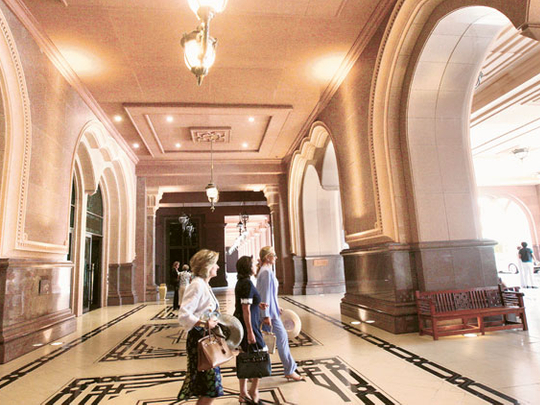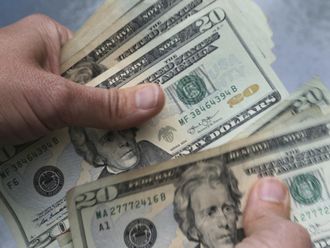
Dubai There was a notable decline in Abu Dhabi hotel performance in February compared to the same month last year as they reported a drop in all major performance indicators.
But Dubai hotels yielded mixed results, TRI Hospitality Consulting revealed in its latest HotStats survey of full-service hotels in six Mena (Middle East and North Africa) cities.
The study highlighted that with regard to Abu Dhabi hotel profits, Goppar (total gross operating profit for the period divided by the total available rooms during the period) for the month was 35.3 per cent below the same period last year, making Abu Dhabi the only GCC city among the four surveyed by HotStats to post a Goppar decline during the month.
In terms of the top line indicators, meanwhile, occupancy and ARR (average room rates) for February fell 3.0 percentage points and 28.8 per cent respectively to close the month at 76.2 per cent and $173.85, dragging RevPAR (revenue per available room — the performance benchmark) down by 31.6 per cent to $132.39.
Performance
According to Peter Goddard, managing director of TRI Hospitality Consulting in Dubai, the decline in Abu Dhabi hotel performance is more due to the strong performance of the hotels last year rather than a flat performance this year as Abu Dhabi hosted some mega events last February such as IDEX and the Al Ain Aerobatic Show which boosted hotel demand.
"To put February numbers into perspective, an analysis of the month-on-month performance in Abu Dhabi shows a consistent improvement in occupancy and ARR for the last three months," he said.
The decline in performance, according to the TRI study, was mainly caused by an influx of supply over the last two to three years as growth in supply outpaced the growth in demand.
Major hotel openings in Abu Dhabi in the last few months include the Park Hyatt Saadiyat Island, Jumeirah Etihad Towers, Westin Abu Dhabi, Hyatt Capital Gate and Sofitel Abu Dhabi Corniche, among others.
The anticipated growth in supply prompted the government to be selective in issuing new hotel licences in Abu Dhabi.
"The decision to freeze or limit new hotel licences does not surprise me as similar controls were enforced in the 1990s," said Goddard, adding that the Abu Dhabi government has an equity stake in many hotels and hence a vested interest in maintaining reasonable occupancy levels.
"The short term effect on occupancies and average daily rates of limiting hotel licences is likely to be insignificant, but medium to long term the reduced number of hotels will mean higher occupancy and higher average daily rates," Goddard said.
Marginal growth
Meanwhile, in Dubai, hotels posted a 4.3 percentage point drop in occupancy in February from the same month last year, according to the TRI study, while the ARR went up 2.9 per cent to $312.4.
"Although this resulted in a 2 per cent drop in RevPAR, a marginal growth in non-room revenues appears to have helped the hotels limit the drop in TrevPAR [total revenues per available room] which dropped marginally by 0.2 per cent," the study stated.
It added that on the bottom line, however, Dubai hotels posted a marginal growth of 0.9 per cent for the month compared to the same period last year, achieving a Goppar of $299.96.
Following the gruelling Arab Spring, hotels in Egypt have started a recovery but remain a long way from their highs prior to the revolution, according to the study, which says that full service hotels in Cairo reported occupancy of 41.2 per cent and ADR (average daily rate) of $110.19 in February. TrevPAR for the month was $91.13 and Goppar was $36.10.
Tourist arrivals in Egypt plunged 32 per cent to 10.2 million and revenues dropped 30 per cent to $9 billion last year due to the Arab Spring, but the country is projected to receive 12-13 million visitors this year and see revenues improve to $11 billion, according to a positive outlook issued by Egypt's Ministry of Tourism.
"Hoteliers are reporting greater stability on the ground, which might reflect an improvement in hotel performance in the coming months.
"A strong recovery in tourism arrivals is unlikely as long as the risk of violence remains," said Goddard.










